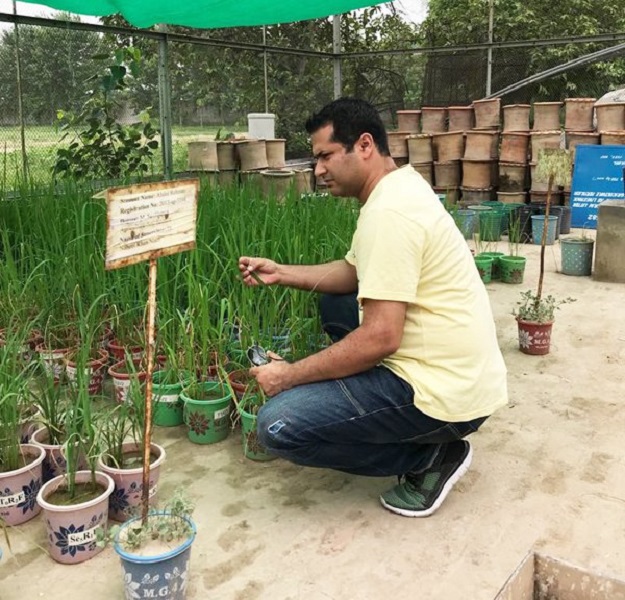Pakistani scientists develop arsenic water filter using watermelon rind
The innovative and cost-effective filter can help tackle contamination in groundwater

The innovative and cost-effective invention can help tackle water contamination in groundwater. STOCK IMAGE
Scientists at the University of Agriculture Faisalabad (UAF) examined many natural biowastes for arsenic removal and finally discovered that chemically modified “xanthated watermelon rind” is the best to catch arsenic usually found in abundance in groundwater across many parts of the world.
According to World Health Organisation (WHO), arsenic is naturally found in soil and groundwater in many countries. Arsenic pollution is common in Bangladesh, India, Nepal, China, Pakistan and some parts of Americas. Long exposure of arsenic polluted water is lethal and 43,000 people die of it annually.
Arsenic is found in wells and deep reservoirs. Various methods and filters are available to clean the arsenic from water, but some of them are very costly and thus unaffordable due to their high price. But the watermelon rind filter is the cheapest method developed, thus far.
Arsenic in Pakistan groundwater 'alarmingly high': study
According to the research published in “Science of the Total Environment,” the filter proved to be effective to clean the water from arsenic by up to 95 per cent.
The research to utilise xanthated water melon rind was performed under supervision of Dr Nabeel Khan Niazi by his PhD student, Muhammad Bilal Shakoor, at the UAF. Niazi and his team won the funding from the Grand Challenges Canada – Stars in Global Health in 2014 to develop the technology.
 Dr Nabeel Khan Niazi. PHOTO: EXPRESS
Dr Nabeel Khan Niazi. PHOTO: EXPRESSSpeaking to The Express Tribune, Dr Niazi said that high-tech arsenic filters cost around 20 to 25,000 rupees or more but the watermelon rind arsenic filter will only cost Rs5,000 to Rs6,000 and it can work for six to eight months. The developed prototype can treat 20 liters of water a day.
The science behind the arsenic filter
The watermelon rind is washed to remove dirt and heated to dry in sunlight and oven. The dried rind is then turned into powder in an electric grinder.
Xanthated watermelon rind’s next phase is fine example of chemistry as the powder is treated with sulfuric acid, which opens the biopolymer rings of the material and exposes many surface functional groups for reaction. The UAF team then treated it with Carbon disulfide – as sulfide has a unique quality to bind arsenic from water and the xanthated watermelon filter material is almost ready.
The team tested many water samples collected from different parts of the country and the material was found very promising to embed in the filter.
The patent of the filter is being filed but Niazi aims to widely distribute the invention among the marginalised people, who are living without electricity in rural areas of Pakistan as the filter works without using power supply. He also submitted a proposal for funding to scale up the product via the Technology Development Fund of the Higher Education Commission (HEC).
WHO ‘finalises suggestions’ on arsenic poisoning
“There is another important potential use of this xanthated material because it can be easily turned into a cheap sensor to spot arsenic poisoning in water reservoirs,” said Niazi, whose students are working on various aspects of arsenic sensor.
According to a survey by Pakistan Council for Research on Water Resources (PCRWR), arsenic contamination is common in wells in some parts of Punjab and Sindh.
The arsenic pollution in well water in Bahawalpur, Chichawatni, Sahiwal, Sadiqabad, Multan, Khanpur and Shujaabad is higher than the WHO standards (10 ppb). Majority of wells in Sindh, for instance in Gambat, Khairpur, Dadu, Sehwan, Kot Diji, Johi and even Tharparkar have high concentration of arsenic in well water.
The innovative filter can provide a good solution to tackle the issue in Pakistan.
Long term exposure of arsenic polluted water may cause diarrhea, normal and blood vomiting, body pain, skin cancer and irreversible damage to lungs, kidneys and liver.



















COMMENTS
Comments are moderated and generally will be posted if they are on-topic and not abusive.
For more information, please see our Comments FAQ